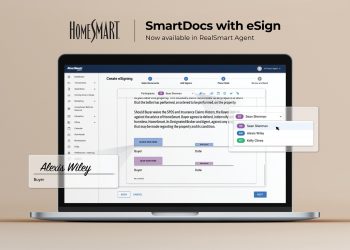 RISMEDIA, July 22, 2009-The federal tax credit for first-time home buyers is now half way to its Dec. 1, 2009, expiration date, and it seems fair to ask just how much it is helping real estate markets. The RE/MAX network in northern Illinois did just that, interviewing 40 RE/MAX agents from across the region about how the tax credit is impacting the first-time buyers with whom they work. “The overall conclusions we draw from the survey are twofold,” said Jim Merrion, regional director of the RE/MAX northern Illinois real estate network. “First, buyers are generally aware of the fact that there is a tax credit available. However, a majority of them understand only a few, if any, of the program’s details.
RISMEDIA, July 22, 2009-The federal tax credit for first-time home buyers is now half way to its Dec. 1, 2009, expiration date, and it seems fair to ask just how much it is helping real estate markets. The RE/MAX network in northern Illinois did just that, interviewing 40 RE/MAX agents from across the region about how the tax credit is impacting the first-time buyers with whom they work. “The overall conclusions we draw from the survey are twofold,” said Jim Merrion, regional director of the RE/MAX northern Illinois real estate network. “First, buyers are generally aware of the fact that there is a tax credit available. However, a majority of them understand only a few, if any, of the program’s details.
“Second, the tax credit has a stimulative impact, but the effect is primarily psychological. Buyers want to get the benefit of the tax credit, and that encourages them to act, but the tax credit doesn’t have much impact on how much first-time buyers can afford to pay for a home,” said Merrion.
The tax credit was a key part of the economic stimulus package approved by Congress and signed by President Obama in February. Designed to encourage home purchases, it can be worth as much as $8,000 in reduced taxes or added income.
The 40 RE/MAX agents interviewed for the survey estimate they worked with 390 first-time buyers through the first half of 2009. Seventy-three percent of those buyers were aware of the tax credit even before meeting with the agent. To date, approximately 18% of the 390 buyers have either purchased a home or have had an offer accepted and are preparing to close the transaction. Most of the remaining buyers are still in the market looking for the right home.
“The fact that the tax credit expires at the end of November should begin to get more and more of them off the fence and into a home in the next few months,” said Merrion. “In responding to our survey, the agents we interviewed said a majority of buyers see the tax credit as a major motivation to buy this year even though they can afford to buy a home without it. For others, it merely reinforces their existing decision that this is the time for them to buy,” he said.
During the first-half of 2009 in the metro Chicago real estate market, the average price of a home was $259,354, according to data from the MRED multiple listing service. The $8,000 credit equals 3.1% of that amount. That helps explain why the survey indicated that the tax credit is having a major impact on affordability for only 17% of buyers.
For the majority of qualified buyers, said the RE/MAX agents interviewed, the tax credit provides a financial boost by replenishing the savings they use for a down payment and closing costs or covering some of the incidental expenses that often come with purchasing a first home, whether that involves buying a lawn mower, putting up wallpaper or acquiring new furniture.
The survey also revealed that many first-time buyers don’t have a firm grasp of the details of the tax credit.
-Most buyers knew there was a date by which they had to act in order to qualify for the tax credit, but many are confused about when that was and what they had to do. A home purchase must be closed no later than Nov. 30, 2009 to qualify for the credit.
-Many buyers do not realize that to qualify as a first-time buyer you can have owned a home previously as long as you have not have owned a home for three years before making a home purchase that qualifies for the tax credit.
-A large percentage of buyers also are unclear about the fact that they will receive the full benefit of the tax credit to which they are entitled even if they don’t pay that amount in income taxes for 2009. For example, if an individual or couple qualifies for the full $8,000 credit but owes only $3,000 in income taxes for the year, their entire tax bill would be eliminated, and they would also receive a tax refund check for $5,000.
-Another area of confusion, but one that the RE/MAX agents report as affecting relatively few first-time buyers, involves income limitations. Individuals with an adjusted gross income up to $75,000 can qualify for the full $8,000 credit, as can married couples earning up to $150,000. The available credit amount then declines as income increases and phases out at $95,000 for individuals and $170,000 for couples.
For many buyers, another aspect of the tax credit that is confusing is the possibility of repayment. An earlier version of the first-time buyer tax credit did have to be repaid, meaning that it functioned like an interest-free loan. The updated version of the credit approved this year eliminates the need for repayment unless the home is sold within three years, in which case the credit must be repaid.
“There is talk in Congress about increasing and/or extending the tax credit and making it applicable to all home buyers, not just those purchasing their first home,” reported Merrion. “That would be a great help to the housing market, which continues to face significant headwinds in this soft economy. However, for first-time buyers, we see very limited value in waiting and hoping that Congress will act again. If a home purchase is on their radar today, our advice is to start shopping seriously and close on a great new home before Dec. 1. To do that, they will want to get the house under contract by Sept. 30 so they have ample time to close the transaction.”
For more information, visit www.remax.com.










